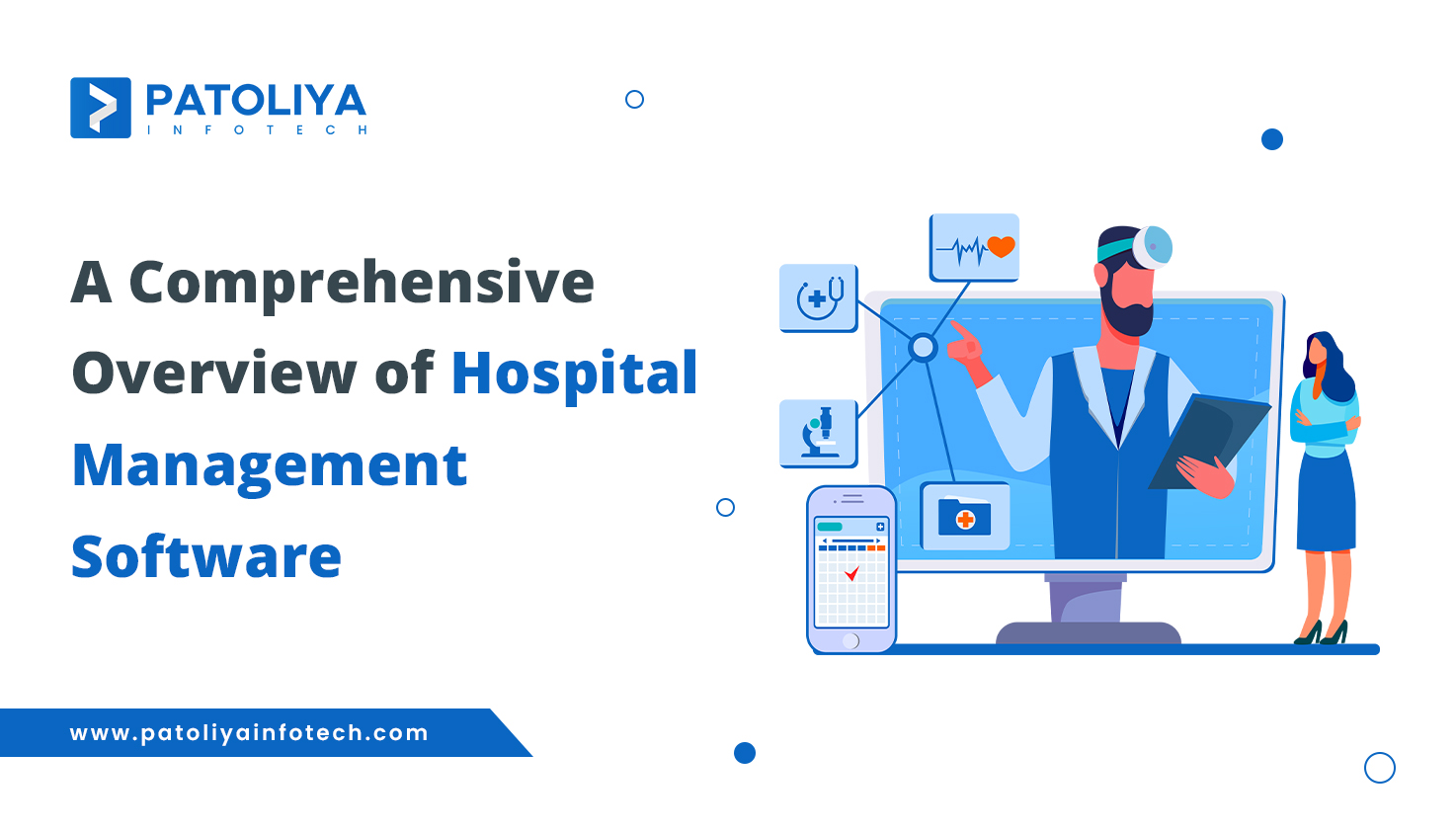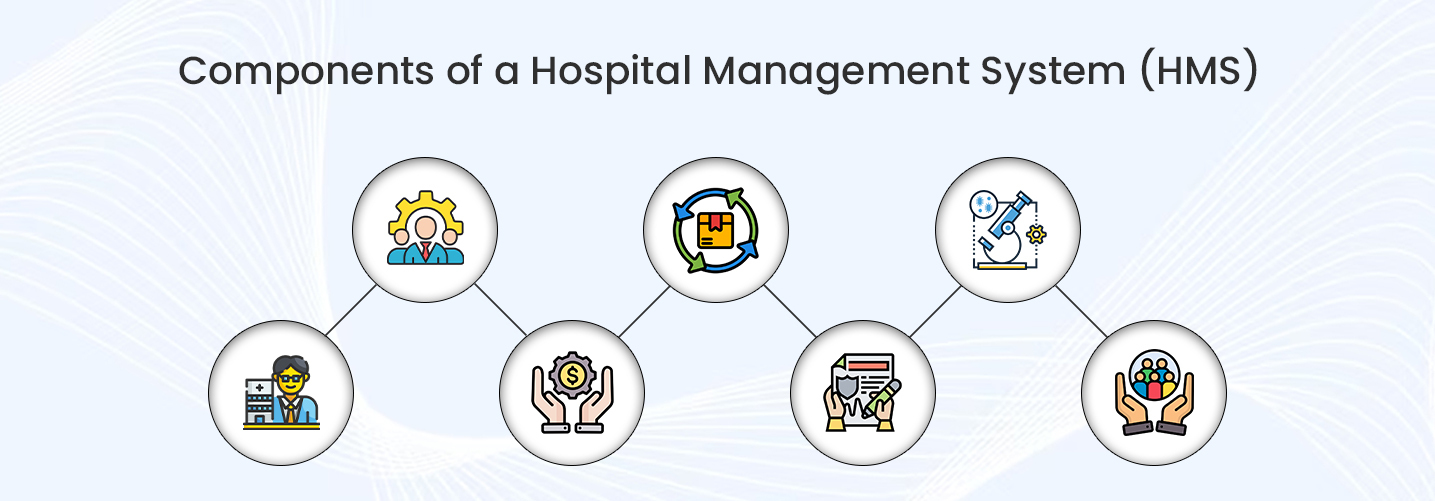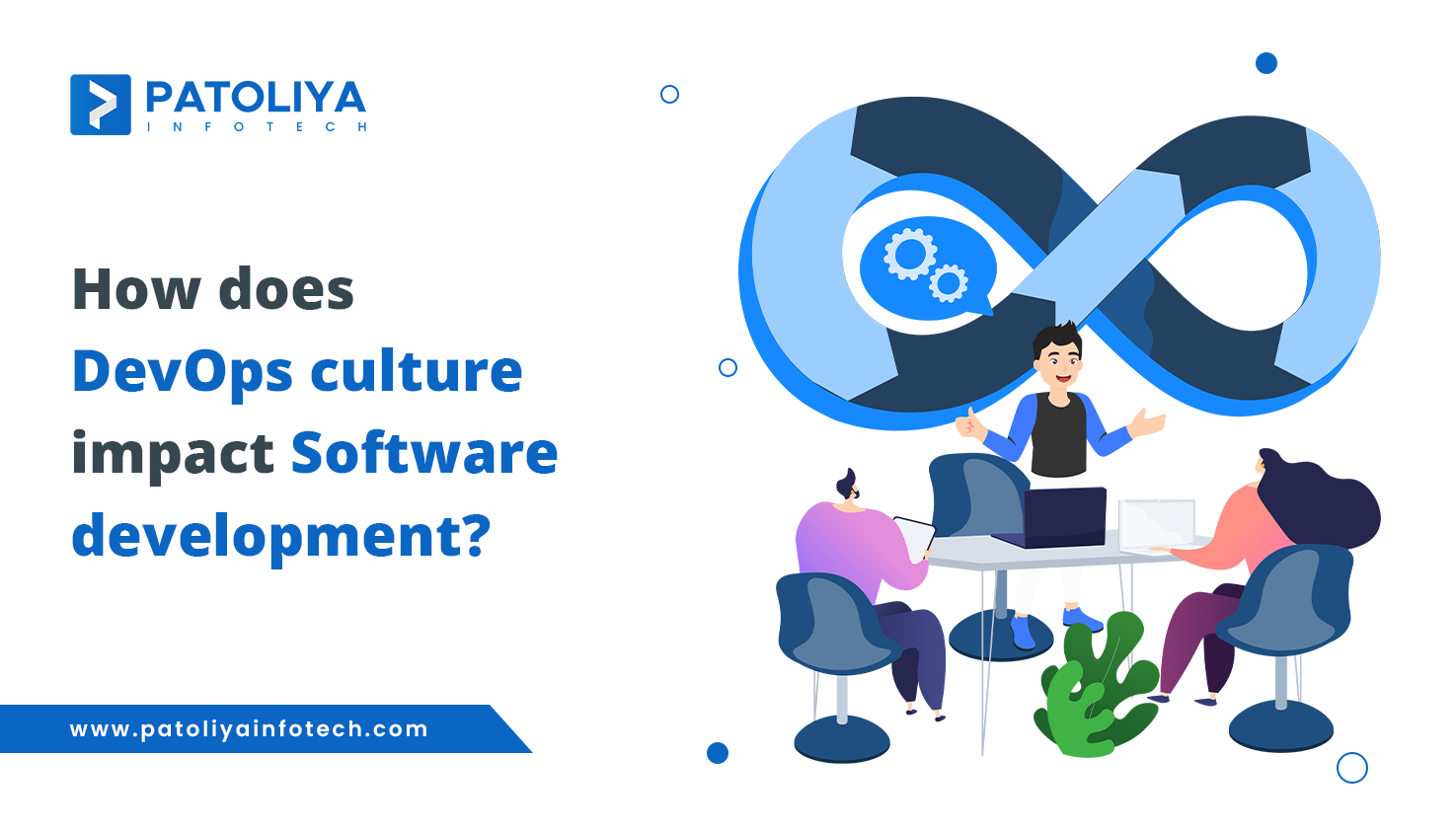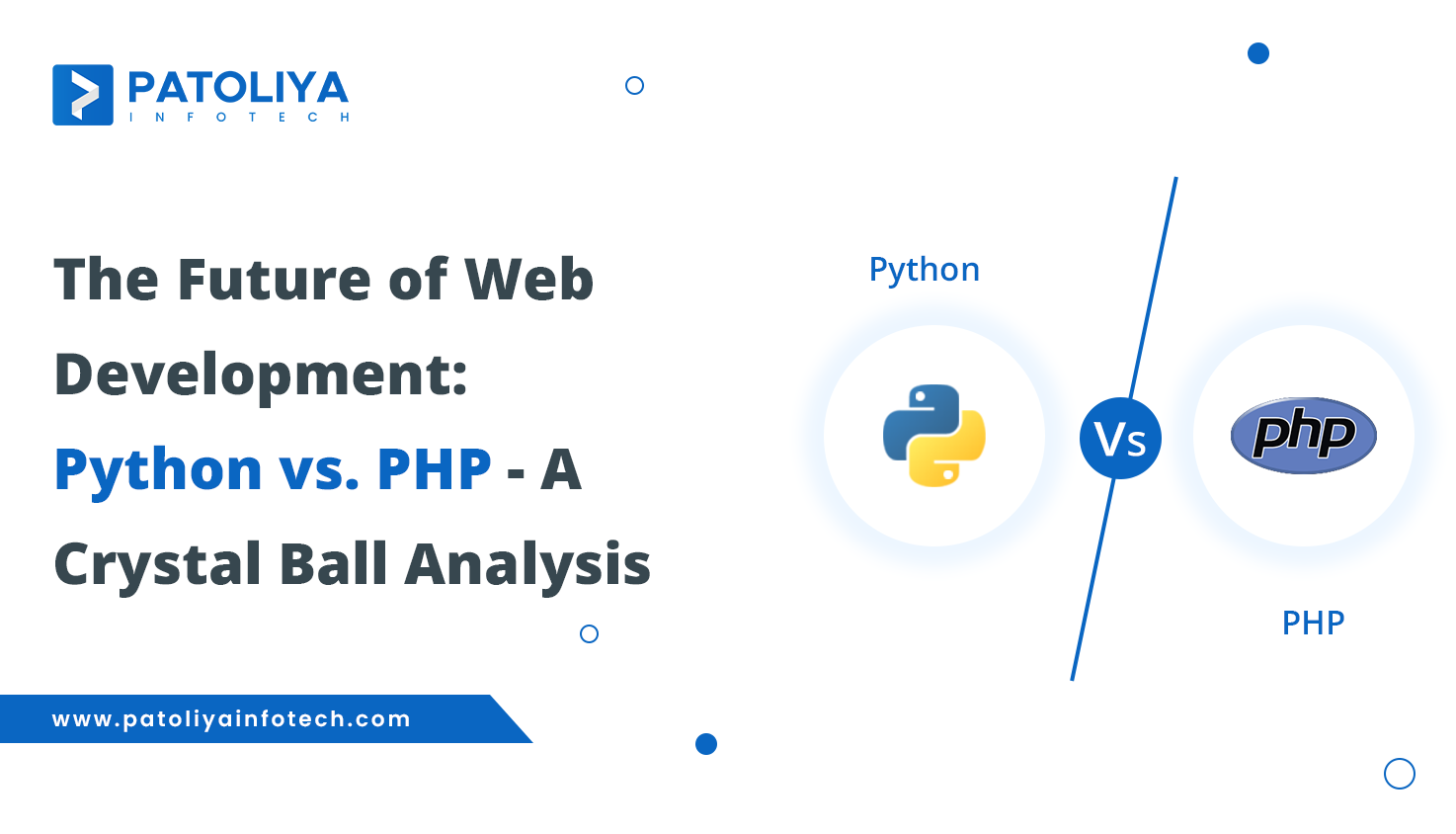A Comprehensive Overview of Hospital Management Software

Businesses, like healthcare, need modern tools to run smoothly. Hospitals often face challenges in managing their technology efficiently, which emphasizes the importance of hospital management software (HMS) to streamline their operations. That's where hospital management software (HMS) comes in. It's like a special helper for hospitals, making their work easier and more efficient.
This software is super important because it helps hospitals with a lot of tasks. It helps them organize their work, check and keep track of medical tools, see how well doctors and nurses are doing their jobs, and use smart technology to understand information better.
Learning more about hospital management software can provide valuable insights into its functionalities and benefits for your healthcare business. Understanding its features and capabilities, especially with guidance from experts at Patoliya, can significantly enhance your hospital's performance and operational efficiency.
What Is Hospital Management Software (HMS)?
A study suggests that healthcare providers dedicate almost half of their time (49.2%) to completing paperwork, which is an inevitable part of working in a hospital. However, it is possible to automate the process and thereby relieve the pressure on doctors and other staff members. In addition, numerous other procedures occur within a hospital setting. A hospital management system (HMS) serves as a comprehensive solution for managing all hospital operations and facilitating data transfer.
An application of software called Hospital Management System (HMS) gathers information on patients, doctors, staff, and administrative aspects of a hospital. A key benefit of implementing an HMS is the reduction of paper usage.
In essence, this software merges data from various sources into a unified application or web system. As a result, it can be employed in various aspects of hospital management, including:
Employee information: Contact information and professional qualifications
Digital tools for doctors: Access to patients' health information, medical history, and treatment progress; appointment scheduling, emergency calls, and reminders; and the option to connect with other specialists as needed.
Laboratory procedures: Entering each patient's test findings and analyses
Inventory management: Involves maintaining track of the supply of medications and instruments.
Financial management: involves maintaining track of hospital budgets and patient spending.
Insurance protection: Keeping track of patients' insurance information and a list of insurance providers with which the hospital contracts
Analytics and reporting: Customised reports and automated data analysis for various performance assessments.
The hospital management software aims to consolidate all essential components into a single system to enhance the core activities of hospital administration. This software not only automates daily tasks but also enhances internal communication and staff collaboration. It assists with inventory management and facilitates a patient-focused approach to providing exceptional services.
Components of a Hospital Management System (HMS)
The classification of hospital management systems is not limited to a broad category but can be further subdivided into specialized software that targets specific healthcare facility procedures for improvement. This has led to the emergence of various components of hospital management systems on the online market, including:

Appointments Management
Manually organizing appointments makes it more likely that mistakes will be made and is time-consuming. In a recent survey, it was discovered that 68% of patients are more likely to pick a hospital that provides online appointment scheduling, alteration, and cancellation alternatives.
A Hospital Management System can be integrated into your hospital's website to give a scheduling option, giving patients an easy and practical way to make appointments.
In order to do this, documents are collected and the patient's medical history is shared with the doctors well in advance using an HMS with a patient portal. The system will check whether the doctors are available for a remote visit if the patient needs support at home and assign resources accordingly. You can make the appointment booking procedure simple and error-free by digitizing it.
Staff Management
It can be difficult to manage hospital workers, but with employee management modules, all required HR activities can be completed with a single solution. The personnel management component provides a number of crucial services, such as scheduling, which aids in employee shortages and the filling of shifts. The payroll module, which offers a secure hospital database of compensation plans with limited access and editing permissions, is another crucial component.
Under HR document management, the system also provides a safe place to store personnel files, job descriptions, and other important information. Reminders for employee certification expiration dates, qualification verification, continuing education programs, and even immunization due dates can be added to the staff management module.
Controlling finances
The financial part of hospital management includes overseeing the hospital's financial operations, which includes creating, archiving, and providing patients with billing information. Medical billing components give healthcare professionals rapid access to invoices and claims, enabling them to follow the progress of a specific bill and find out whether the insurer has paid it or not.
The use of billing systems in healthcare facilities has a number of advantages, including enhanced payment control, decreased paperwork, and simplified billing procedures made possible by the use of standardized medical codes that eliminate errors.
Management of Claims and Insurance
The insurance information for patients is entered and stored by the HMS's insurance administration section. It can offer policy numbers, information about the insurance provider, and other pertinent data upon request.
There are three main reasons why companies in the healthcare industry should use claims management:
Increased Accuracy: Healthcare providers can make sure that each claim is correctly tagged and contains the necessary information before it is invoiced and submitted for a refund by including a claims management solution in their workflow.
Better Analytics: Claims management modules make it possible to analyze data in a meaningful way, which boosts productivity and simplifies the claiming process.
Predictability: By predicting whether claims will be approved or refused and returned unpaid, these solutions can help save time and money.
Interoperability and Integration: Seamless Healthcare
In the healthcare realm, interoperability is a key factor in the effectiveness of hospital management software. The ability of different software systems and applications to communicate, exchange data, and utilize information cohesively is crucial. Modern HMS solutions prioritize interoperability in order to integrate seamlessly with EHRs, patient portals, telemedicine platforms, and other healthcare technologies. This interoperability empowers healthcare providers with a holistic view of patient data, enhancing care coordination and decision-making while reducing redundancy and inefficiencies.
Data Security and Privacy: Protecting Sensitive Patient Information
As more technology enters healthcare, keeping patient information safe is really important. Hospital management software that is considered strong and reliable places a significant emphasis on ensuring the safety and protection of sensitive patient data. This emphasis involves implementing a series of robust security measures aimed at safeguarding information from unauthorized access or breaches. These measures encompass employing advanced encryption protocols, which are like secret codes that keep data safe, as well as setting up controls to determine who can access what information. Additionally, there's a continual effort to regularly update and improve the software's security features to stay ahead of potential risks and threats.
One crucial aspect of maintaining this level of security is compliance with established regulatory standards such as the Health Insurance Portability and Accountability Act (HIPAA). Adhering to HIPAA ensures that stringent guidelines are followed, guaranteeing the confidentiality and privacy of patient information. By upholding these standards, hospitals and healthcare institutions utilizing this software instill a sense of trust and confidence among patients. The patients feel more secure knowing that their sensitive medical information is kept private and protected against any unauthorized access or breaches, further solidifying the credibility and reliability of the healthcare facilities implementing such robust security measures within their management software systems.
Artificial Intelligence and Predictive Analytics: Revolutionizing Healthcare Optimization
The integration of artificial intelligence (AI) and predictive analytics within hospital management software heralds a new era in healthcare optimization. AI-powered algorithms can analyze vast amounts of patient data, enabling them to predict disease trends, treatment outcomes, and potential risks. This predictive prowess empowers clinicians to make informed decisions tailored to individual patient needs. Predictive analytics within HMS also identifies patterns, optimizes resource allocation, predicts patient admission rates, and mitigates operational bottlenecks. This data-driven approach not only improves patient outcomes but also enhances operational efficiency.
Telemedicine Integration: Expanding Access to Quality Care
The evolution of hospital management software encompasses seamless integration with telemedicine platforms. This integration revolutionizes patient care accessibility. Telemedicine features embedded within HMS enable remote consultations, virtual visits, and remote monitoring. These features transcend geographical barriers, providing patients with convenient access to healthcare services. Expanding healthcare outreach through telemedicine integration ensures continuity of care, particularly in remote areas or during unprecedented situations such as the current pandemic. By embracing telemedicine, healthcare providers can foster a patient-centric approach to care delivery.
Controlling the Supply Chain
Purchasing and employing resources, managing inventory, and distributing goods and services to end users are all aspects of healthcare supply chain management. The following are some advantages of this strategy for healthcare professionals:
Cost reduction: Supply chain management enhances planning and forecasting, allowing hospitals to avoid having too much inventory on hand and to make the best use of their current resources. This releases money for other uses.
Increased Safety: Greater transparency offered by the system increases safety by lowering the possibility of treatment errors and preventing the entry of fake items into the supply chain.
Laboratory management
The administrative functions of the laboratory display the specifics of the various tests that patients undergo, providing reports as necessary, and keeping records collectively. Physicians may easily access the system, and it notifies both the doctors and the patients when the results are available.
The sample management function aids in the management of laboratory samples throughout every stage of their existence, including their supply chain and point of origin.
Given the variety of laboratory services, a billing system is typically a separate component with its own coding systems. Last but not least, laboratory management modules generate timely reports on every stage of the process, including the samples that were collected and processed, the reagents used, the turnaround time, and more.
Support Management
Prioritizing patient satisfaction is essential for any institution. The collection of information on patient questions, concerns, requests, and feedback falls under this category. It's crucial to respond to this immediately and properly. The process of gathering feedback can be automated to reduce the workload of the employees and enable everyone to complete the feedback form.
Conclusion
Imagine a hospital where patient records are seamlessly organized, doctors swiftly access critical information, and every aspect of healthcare is finely coordinated. That's the power of Hospital Management Software (HMS). It's not just software; it's a transformational ally for hospitals, streamlining operations, and empowering better patient care.
From appointments to inventory, finances to patient records, HMS acts as the conductor orchestrating the symphony of hospital functions. Its integration brings efficiency, accuracy, and a patient-centric approach to healthcare delivery.
At Patoliya Infotech, we understand the pulse of the healthcare sector's digital needs. Our commitment is not just to provide the latest technology; it's about enhancing your hospital's capability to serve better. We thrive on innovation and strive to offer tailored solutions that elevate your healthcare services to new heights.
Unlock the potential of your healthcare institution with our customized HMS solutions. Reach out to our specialists today and embark on a journey to transform your hospital's operations and enhance patient care.


